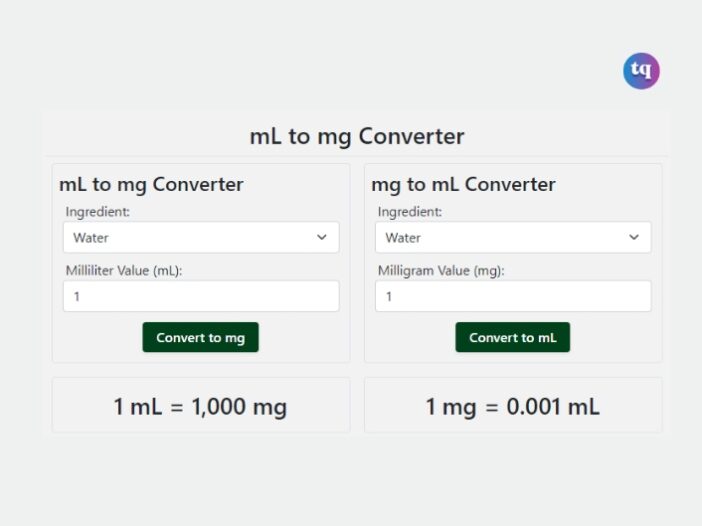
Table of Contents
Introduction:
In the realm of pharmaceuticals, accurate dosage calculations are paramount to ensure the safe and effective administration of medications. Dosage instructions often involve different units of measurement, such as milliliters (mL) and milligrams (mg). Converting between mL and mg is a critical skill for healthcare professionals involved in prescribing, dispensing, and administering medications. In this article, we will delve into the process of converting(mL to mg) and shed light on dosage calculations in the pharmaceutical industry.
Understanding mL and mg: Before exploring dosage calculations, it is essential to grasp the units involved. Milliliters (mL) measure volume, representing the quantity of liquid in a medication. Milligrams (mg), on the other hand, measure mass or weight, indicating the amount of a substance present in a medication.
Converting mL to mg: To convert mL to mg, it is necessary to consider the concentration or strength of the medication. Concentration denotes the amount of active ingredient present in a given volume of the medication, typically expressed as milligrams per milliliter (mg/mL) or a similar unit.
The conversion process follows a simple formula:
mL x mg/mL = mg. By multiplying the volume in milliliters (mL) by the concentration in milligrams per milliliter (mg/mL), we can determine the equivalent dosage in milligrams (mg).
Example: Let’s illustrate the conversion process with an example. Suppose we have a medication with a concentration of 5 mg/mL, and we need to convert a volume of 2.5 mL into milligrams (mg).
Conversion: 2.5 mL x 5 mg/mL = 12.5 mg
In this example, a volume of 2.5 mL of the medication corresponds to 12.5 mg.
Importance of Accurate Dosage Calculations:
Accurate dosage calculations are of paramount importance to ensure patient safety and optimal therapeutic outcomes. Errors in dosage calculations can lead to adverse effects, inadequate treatment, or even life-threatening situations. Healthcare professionals must exercise caution, double-check calculations, and utilize appropriate tools or calculators to minimize the risk of errors.
Factors to Consider: Several factors should be taken into account when performing dosage calculations:
- Medication Formulation: Medications come in various formulations, such as liquids, tablets, or capsules. Each formulation may have a different concentration, necessitating specific conversion calculations. It is crucial to review the medication’s packaging or prescribing information to identify the correct concentration.
- Patient Factors: Individual patient characteristics, such as weight, age, and medical condition, may influence dosage calculations. Adjustments or considerations based on these factors should be made accordingly to ensure the medication is appropriately dosed.
- Prescribing Guidelines: Adhering to prescribing guidelines and recommended dosage ranges is crucial. Healthcare professionals should consult drug references, prescribing information, and clinical guidelines to ensure accurate dosing. Additionally, they should be aware of any specific dosing requirements for certain populations, such as pediatric or geriatric patients.
Conclusion:
Converting mL to mg is a fundamental skill for healthcare professionals in the pharmaceutical industry. Accurate dosage calculations are vital for patient safety and the efficacy of medication regimens. By understanding the units of measurement involved, considering medication concentrations, and employing the appropriate conversion formula, healthcare professionals can accurately convert between mL and mg. Diligence, attention to detail, and reliance on reliable resources are essential in dosage calculations to minimize the risk of errors and provide optimal care to patients.